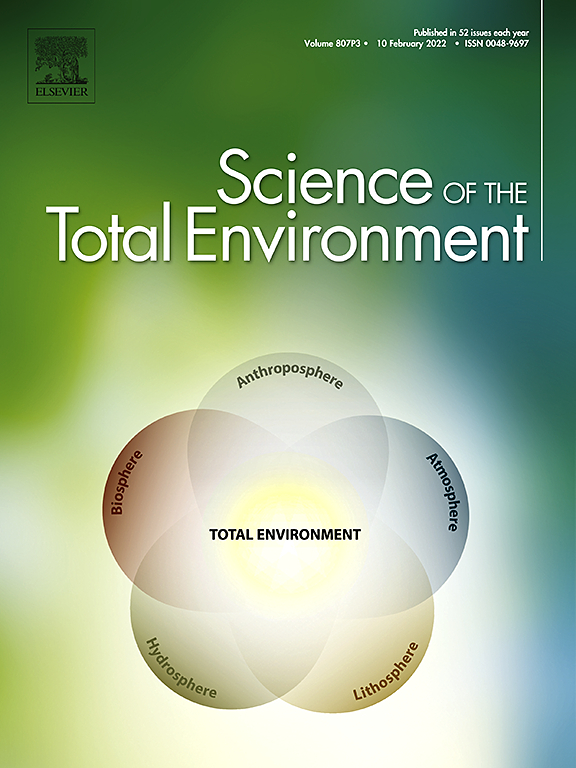Knowledge Hub
Should India Move toward Vehicle Electrification? Assessing Life-Cycle Greenhouse Gas and Criteria Air Pollutant Emissions of Alternative and Conventional Fuel Vehicles in India
2022
Author(s): Peshin T, Sengupta S, Azevedo IML
The authors perform a state-specific life-cycle assessment of greenhouse gases (GHG) (CO2eq) and sulfur dioxide (SO2) emissions in India for representative passenger vehicles (two-wheelers, three-wheelers, four-wheelers, and buses) and technologies (internal combustion engine, battery electric, hybrid electric, and plug-in hybrid electric vehicles).
Sustainable Electric Vehicle Batteries for a Sustainable World: Perspectives on Battery Cathodes, Environment, Supply Chain, Manufacturing, Life Cycle, and Policy
2022
Author(s): Yang Z, Huang H, Lin F
Li-ion batteries (LIBs) can reduce carbon emissions by powering electric vehicles (EVs) and promoting renewable energy development with grid-scale energy storage. However, LIB production and electricity generation still heavily rely on fossil fuels, resulting in major environmental concerns.
When, Where and How Can the Electrification of Passenger Cars Reduce Greenhouse Gas Emissions?
2022
Author(s): Sacchi R, Bauer C, Cox B, Mutel C
This paper introduces carculator, a Python library to conduct environmental life cycle assessments of current and future passenger vehicles. Because carculator is open-source and equipped with an easy-to-use online graphical user interface, it produces context-specific results, deemed more relevant than results otherwise published in more static formats.
Investor perspectives on accelerating growth in the Indian ev ecosystem
2022
Author(s): Moerenhout T, Goel S, Aneja, D A, Bansal A, Ray S
The report takes stock of India’s current EVs ecosystem and where the sector may be heading in the future, with a focus on drivers of and barriers to investment. The research for this study involved in-depth consultations with experts, policymakers, investors, and companies, as well as results from an online survey with EV experts and companies. The report presents the main takeaways of this research.
Electrification of Heavy-Duty Vehicles in Emerging Markets
2022
Author(s): Khan T, Yang Z
The objectives of this paper are to assess the status of zero-emission HDV deployment and policies in Emerging Markets and Developing Economies (EMDEs), evaluate the major policy levers for HDV electrification, and identify policy barriers and key recommendations for HDV electrification in the EMDEs.
Comparing the future demand for, supply of, and life-cycle emissions from bio, synthetic, and fossil LNG marine fuels in the European Union
2022
Author(s): Comer B, Malley O J, Osipova L, Pavlenko N
This report, which focuses on ships trading with the European Union, predicts a tripling of demand for LNG as marine fuel between 2019 and 2030, based on trends in fuel consumption. It also estimates that renewable LNG will cost seven times more than fossil LNG in 2030 and, therefore, subsidies or other policies would be needed to encourage its use.

Life Cycle CO2 Emissions for the New Energy Vehicles in China Drawing on the Reshaped Survival Pattern
2022
Author(s): Yu R, Cong L, Hui Y, Zhao D, Yu B
This paper expands on the previous studies by examining the NEVs' age and distribution based on the national representative China Compulsory Traffic Accident Liability Insurance for Motor Vehicles (CTALI) database from 2018 to 2020.
The Use of E-Moped Increases Commute Satisfaction and Subjective Well-Being: Evidence From Shanghai, China
2022
Author(s): Sun S, Yao Y, Xu L, He X, Duan Z
The authors conducted an empirical study on the impact of commuting by e-mopeds, using survey data from eight residential communities in Shanghai. A path analysis model was established to investigate the relationships between commute characteristics (including commute distance, commute time, commute costs, transport mode choice, transport environment), socio-demographics, commute satisfaction, and subjective well-being.
The rapid deployment of zero-emission buses in Europe
2022
Author(s): Mulholland E, Rodríguez F
This briefing summarizes the current market for zero-emission buses, shows how manufacturers have responded to the rapid growth in demand, and identifies policy levers that will accelerate the deployment of these vehicles in Europe.
Considerations for the ReFuelEU aviation trilogue
2022
Author(s): Baldino C, Mukhopadhaya J
This briefing paper assesses the differences between the European Commission proposal for a ReFuelEU aviation regulation and the European Parliament and the Council of European Union’s amendments. It identifies which proposals would increase low-greenhouse gas (GHG) compliance options and reduce GHG emissions.



